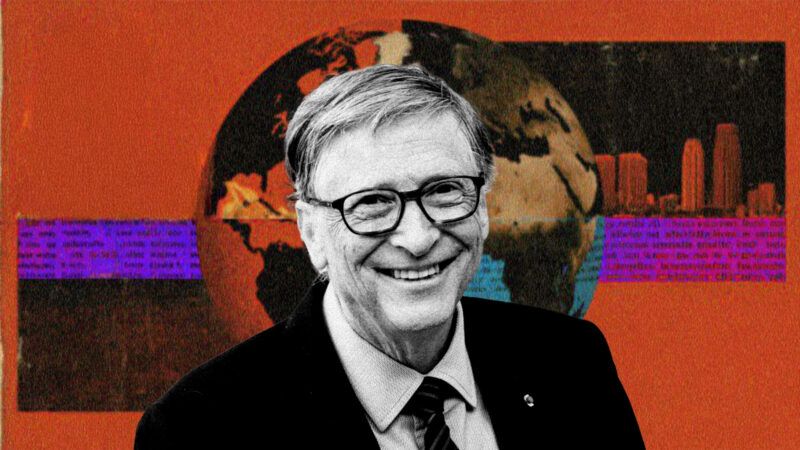Bill Gates Admits That Climate Change 'Will Not Be the End of Civilization'
The Microsoft co-founder recently penned a letter arguing that increasing global prosperity is the best way forward on the issue.

Next month, government officials, policymakers, and activists will flock to Belém, Brazil, for the United Nations' annual climate change summit. In the past, these conferences have focused on wealth distribution schemes and transitioning from fossil fuels. At this year's conference, Bill Gates is advocating for a different strategy: shifting the primary focus away from climate change altogether.
On Monday, the Microsoft co-founder penned a letter on his blog, Gates Notes, that argued for adopting "a different view and adjust[ing] our strategies for dealing with climate change." Specifically, Gates said, the world has "a chance to refocus on the metric that should count even more than emissions and temperature change: improving lives. Our chief goal should be to prevent suffering, particularly for those in the toughest conditions who live in the world's poorest countries."
Gates continues by listing "three truths" to guide decision-making on the issue: "Climate change is a serious problem, but it will not be the end of civilization"; "Temperature is not the best way to measure our progress on climate"; and "Health and prosperity are the best defense against climate change."
These three principles stand in stark contrast to some of the hysteria promoted by climate activists, including Gates, who, despite remaining optimistic throughout the years that innovation is key to solving the problem, has issued dire warnings about future global warming. While promoting his book How To Avoid a Climate Disaster, which mostly makes the case for energy innovation to address the issue, Gates told a virtual audience in 2021 that the equator will "be essentially unlivable…by the end of the century" unless global practices change. This will lead to "the instability of hundreds of millions of people trying to get out of those regions where a lot of the world's population is, and particularly the poorest in the world."
Claims like these are grounded in a climate forecast scenario produced by the U.N., which assumes unprecedented expansions of global coal use, stagnant innovation, and no collective action to combat greenhouse gas emissions. While commonly referenced by climate change alarmists, climate scientist and American Enterprise Institute senior fellow Roger Pielke Jr. has called this scenario "impossible" and "widely wrong." Gates on Monday seemed to walk back these comments, writing that "emissions projections have gone down, and with the right policies and investments, innovation will allow us to drive emissions down much further."
Perhaps the most important statement that he made is that "using more energy is a good thing, because it's so closely correlated with economic growth." Since the days of Al Gore, climate activists have argued that economic and societal degrowth is the best way to reduce greenhouse gas emissions. This line of thinking has been especially pronounced in the Greta Thunberg era.
But economic growth is the engine that drives meaningful climate progress because climate change is, by and large, a luxury issue. A grid operator in India won't care about its company's greenhouse gas emissions profile if it can't provide electricity to its customers. A farmer in Kenya probably won't care if the fertilizer they're using was made with fossil fuels if that means that their crop yield will improve. The answer to the issue isn't to punish people for making these types of decisions; it's to encourage prosperity. As economies develop, businesses and individuals can invest in new and cleaner technologies, and societies can pour resources into adaptation measures to reduce climate-related deaths (which is already happening).
While Gates' pivot is notable, it does not mean that the issue of climate change will become less politicized. Several academics and advocacy groups have decried Gates' characterization of the issue. Still, Gates' letter could mark a shift in the mainstream line of thinking where more policymakers and members of the public recognize the best way to address climate change: reducing global poverty through capitalism and free markets.


Show Comments (33)